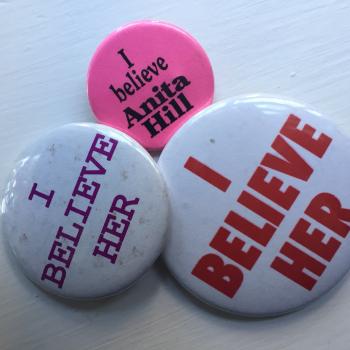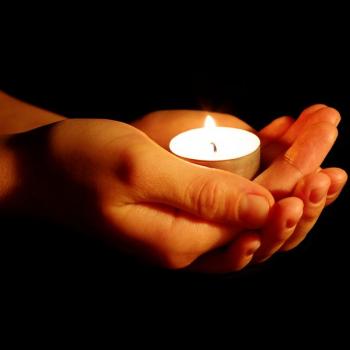In the midst of an executive order clearly intended to target and exclude Muslims, many Christians in the US are trying to figure out how to respond.
There many things – large and small – that Christians can do to fight the xenophobia that threatens our country. One simple thing to do is have lunch!
Today, in Greensboro, NC, a group of Presbyterian Women are hosting their Jewish and Muslim sisters for lunch. While these women live in the same city, they rarely have the opportunity to meet one another and talk together.
Coming together as women of faith from different traditions they will not just share a meal but also begin to build relationships. While there are important differences that mark their traditions and their lives, as women of faith, there are also things that they share. Namely, a commitment to their faith, their families, and their love of neighbor.
The Presbyterian Women of First Pres already have a monthly luncheon. This month, they decided to get to know their neighbors a little better. Such simple and gracious acts are the foundation of hospitality. They are the foundation for building relationships across lines of difference in our community.
Simple acts of kindness and solidarity are essential for challenging the rising threat of xenophobia and racism in our midst.
So, why don’t you invite your Jewish and Muslims neighbors to lunch?
Conversation starters
Here are the questions that the women will be using to guide their conversations this afternoon. Feel free to use these to guide your own conversations – or make up your own set of questions.
- We invite you to begin by introducing yourself to those around you. Who are you? As we all know – each of us embody multiple and changing identities throughout our lives – we are daughters, wives, mothers, professionals, volunteers, sisters, friends, public speakers, activists, bakers, gardeners and so many, many other things. In our different roles and places – people call us by different names. On your paper – write down five names that you have been called in your life that are important in telling the story of who you are. Share these names with your neighbor as you introduce yourselves to one another.
- The birth of children is important in every culture and every family. Think about the rituals and traditions that you share to mark the birth of a child and welcome that child into your community of faith. Share an important story about welcoming a child into your family/faith community that is meaningful to you.
- In each of our faith traditions we have holidays and celebrations that are important to us. What religious holiday is most important to you and why? Share with your neighbor the important aspects and meaning of this holiday or tradition and how you celebrate it.
- Marriage ceremonies and traditions are an important aspect of faith communities – what is your favorite part of a wedding celebration and why?
- Faith is practiced and lived in daily in our lives, not just in our holidays and celebrations – share with your neighbor one way in which your faith shapes your daily life.
Whatever you do – do something!
















